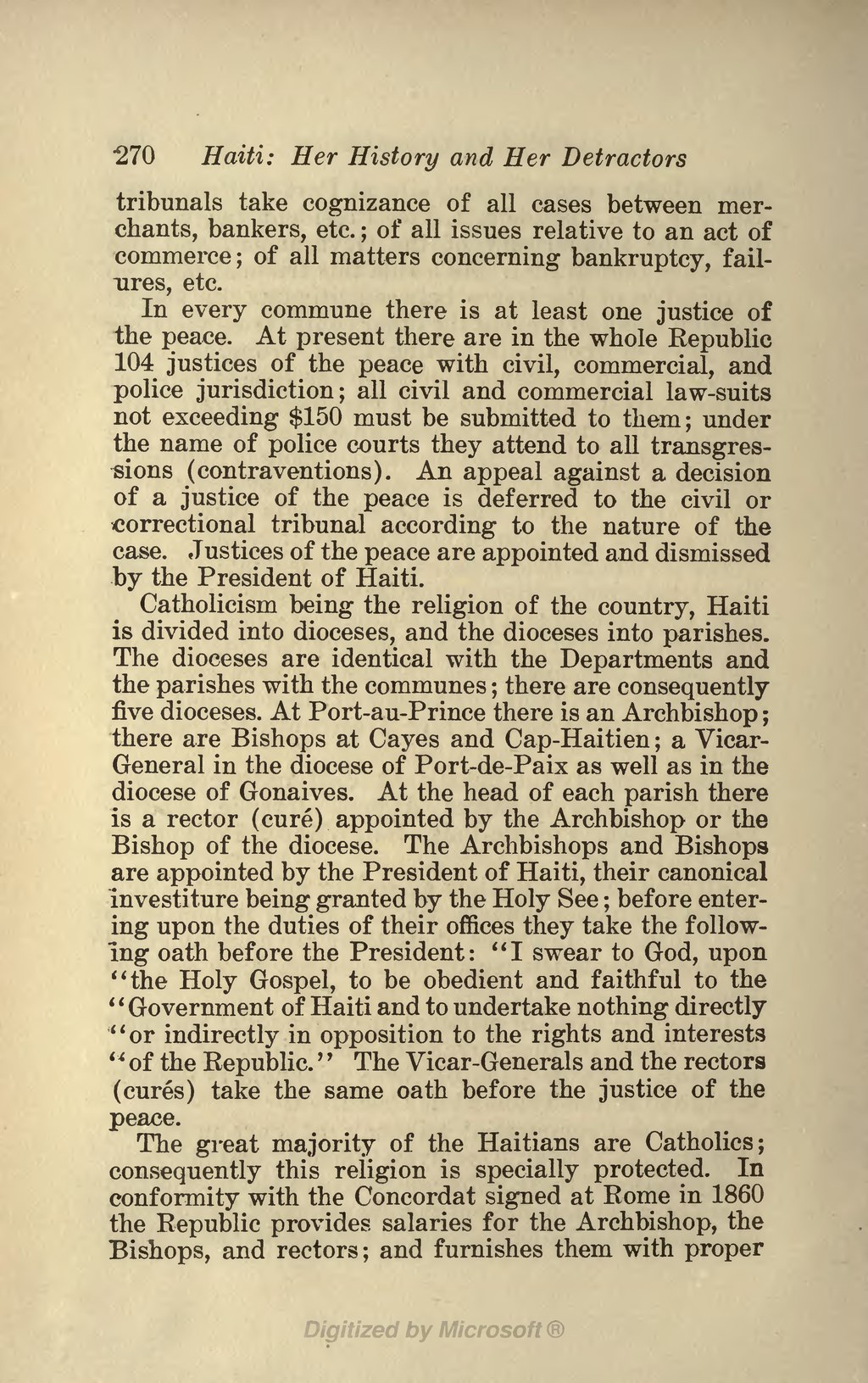tribunals take cognizance of all cases between merchants, bankers, etc.; of all issues relative to an act of commerce; of all matters concerning bankruptcy, failures, etc.
In every commune there is at least one justice of the peace. At present there are in the whole Republic 104 justices of the peace with civil, commercial, and police jurisdiction; all civil and commercial law-suits not exceeding $150 must be submitted to them; under the name of police courts they attend to all transgressions (contraventions). An appeal against a decision of a justice of the peace is deferred to the civil or correctional tribunal according to the nature of the case. Justices of the peace are appointed and dismissed by the President of Haiti.
Catholicism being the religion of the country, Haiti is divided into dioceses, and the dioceses into parishes. The dioceses are identical with the Departments and the parishes with the communes; there are consequently five dioceses. At Port-au-Prince there is an Archbishop; there are Bishops at Cayes and Cap-Haitien; a Vicar-General in the diocese of Port-de-Paix as well as in the diocese of Gonaives. At the head of each parish there is a rector (curé) appointed by the Archbishop or the Bishop of the diocese. The Archbishops and Bishops are appointed by the President of Haiti, their canonical investiture being granted by the Holy See; before entering upon the duties of their offices they take the following oath before the President: "I swear to God, upon the Holy Gospel, to be obedient and faithful to the Government of Haiti and to undertake nothing directly or indirectly in opposition to the rights and interests of the Republic." The Vicar-Generals and the rectors (curés) take the same oath before the justice of the peace.
The great majority of the Haitians are Catholics; consequently this religion is specially protected. In conformity with the Concordat signed at Rome in 1860 the Republic provides salaries for the Archbishop, the Bishops, and rectors; and furnishes them with proper
